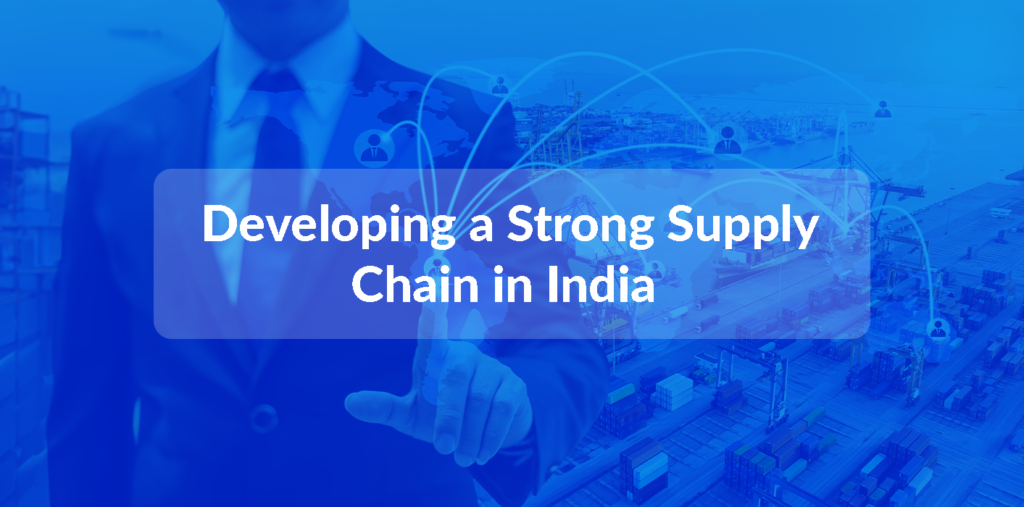In the ever-evolving landscape of global commerce, India stands out as a beacon of opportunity, drawing businesses from around the world with its vast resources, skilled workforce, and burgeoning consumer market. With initiatives like the Production Linked Incentive (PLI) schemes aimed at boosting domestic manufacturing and processing capabilities, India is emerging as a favoured destination for businesses looking to diversify their supply chains beyond China, a strategy commonly known as the “China + 1” approach.
From 2014 to 2023, Foreign Direct Investment equity inflow in the manufacturing sector skyrocketed by 55% to reach $148.97 billion, a significant leap from $96 billion in the previous nine years (2005-2014). This impressive growth is a clear testament to the unwavering dedication of the Indian government to the manufacturing sector.
Opportunities and Challenges in India’s Supply Chain
India’s manufacturing and processing hub potential is undeniably strong, but it’s important to recognise that seizing this opportunity comes with its share of hurdles. The country’s supply chain ecosystem is vast and diverse, spanning numerous industries from agriculture to manufacturing to logistics. This diversity, while promising, also introduces complexities and uncertainties that businesses must navigate. By understanding these challenges, businesses can equip themselves to prepare and strategise for success.
As of 2023, the manufacturing sector contributed 17% to the GDP and employed over 27.3 million individuals in India. The government aims to raise manufacturing’s share to 25% of the economy by 2025. This growth, however, hinges on a robust and efficient supply chain – an area where India faces some hurdles.
Examples of Supply Chain Challenges in India:
- Infrastructure Bottlenecks: Inadequate road and logistics infrastructure can lead to delays and higher transportation costs. A 2020 McKinsey report found that logistics costs in India can be 14% higher than those in developed economies. Imagine a company relying solely on road transportation for critical components. An unexpected monsoon season or road closures due to protests could significantly disrupt production schedules.
Example: A German wind turbine manufacturer setting up a production facility in southern India faced challenges transporting oversized turbine blades. The existing road network lacked the necessary width and clearances to accommodate these blades efficiently. This resulted in delays, special permits being required for each transport, and potential damage to the blades during manoeuvring.
- Fragmented Regulatory Environment: Complicated regulations across different states can create delays and disrupt the smooth movement of goods. For instance, a company aiming to establish a pan-India distribution network might face a maze of varying regulations for permits and licenses in each state, impacting their ability to deliver products efficiently.
Example: A European medical device company faced delays in launching a new product line in India due to complex state-level regulations for medical device approvals. The company had obtained national approval but encountered additional hurdles in obtaining state-specific licenses, causing a significant launch delay and impacting its ability to capitalise on the initial market demand.
- Limited Warehousing Capacity: The lack of modern warehousing facilities, particularly in tier-2 and tier-3 cities, can hinder efficient inventory management. This can be a major concern for companies dealing with temperature-sensitive goods or those requiring specialised storage solutions.
Example: A Japanese electronics company struggled with high inventory carrying costs due to a lack of proper warehousing facilities in smaller Indian cities. The limited storage capacity forced them to hold excess stock in expensive, central warehouses, impacting their profitability.
The Power of the Right Partner
Choosing the right supply chain partner is crucial for success in India. A reliable partner can offer invaluable local expertise, navigate regulatory intricacies, and mitigate operational risks. By collaborating with established players with a proven track record and a robust network, businesses can streamline operations and ensure continuity even in the face of unforeseen disruptions.
Investors should look for a partner with:
- Deep Local Expertise: Experience navigating the complexities of Indian regulations, infrastructure, and cultural nuances. They should be able to anticipate and proactively address potential roadblocks arising from local regulations or cultural misunderstandings.
- Strong Network Infrastructure: A robust network of warehouses, transportation providers, and local partners to ensure efficient logistics and on-time deliveries. This network should encompass various transportation modes – road, rail, and air – to provide flexibility and cost-effectiveness based on specific needs.
- Technology Adoption: Expertise in using technology like warehouse management systems and real-time tracking to optimise operations and minimise disruptions. In today’s data-driven world, a tech-savvy partner can leverage real-time data to identify potential bottlenecks and proactively address them before they snowball into major issues.
Building Resilience: The Stratrich Advantage
At Stratrich, we understand the importance of a strong and resilient supply chain in India. Stratrich offers tailored solutions to foreign companies, providing end-to-end support in market entry, regulatory compliance, logistics management, and more.
- Strategic Sourcing: Identifying reliable and cost-effective suppliers across India. We go beyond just finding suppliers; we conduct a thorough evaluation process to ensure they meet your quality standards and can deliver consistently.
- Multi-modal Logistics Planning: Utilizing a combination of road, rail, and air transportation to optimise delivery timelines and costs. Our expertise lies in designing a customised logistics strategy that leverages the strengths of each mode based on factors like cost, speed, and cargo type.
- Warehouse Optimization: We design and implement efficient warehousing solutions to manage inventory effectively. We consider factors like product characteristics, storage requirements, and geographic reach to design warehouses that optimize space utilization and minimize storage costs.
- Redundancy and Backups: Building in redundancies at critical stages of the supply chain to mitigate the impact of unforeseen disruptions. This could involve identifying alternative suppliers for critical components, having safety stock in strategically located warehouses, or establishing secondary transportation routes. By building in redundancies, we help you prepare for unexpected challenges and ensure business continuity.
Beyond Expertise: Your Trusted Partner in India
Partnering with Stratrich goes beyond just acquiring supply chain expertise. We become your trusted advisor in India, providing you with the following benefits:
- Cultural Understanding: We bridge the cultural gap, ensuring smooth communication and collaboration with local partners and stakeholders.
- Regulatory Compliance: Our team stays updated on the latest regulations and helps you navigate the complexities of obtaining necessary permits and licenses.
- Long-Term Vision: We take a long-term view of your success, continuously optimising your supply chain as your business grows in India.
By partnering with Stratrich, you gain access to our team of seasoned professionals and a proven track record of helping companies navigate the Indian supply chain landscape. We’ll help you develop a robust and adaptable strategy that positions you for success in the exciting Indian manufacturing environment.
Remember, a strong supply chain is not just about efficiency, it’s about building resilience and ensuring business continuity. With Stratrich as your partner, you can focus on what you do best – manufacturing high-quality products – while we handle the complexities of the Indian supply chain. Let’s work together to turn India’s manufacturing potential into your competitive advantage.
Ready to take the next step?
Contact Stratrich today for a free consultation and discuss how we can help you develop a winning supply chain strategy for your Indian operations.








